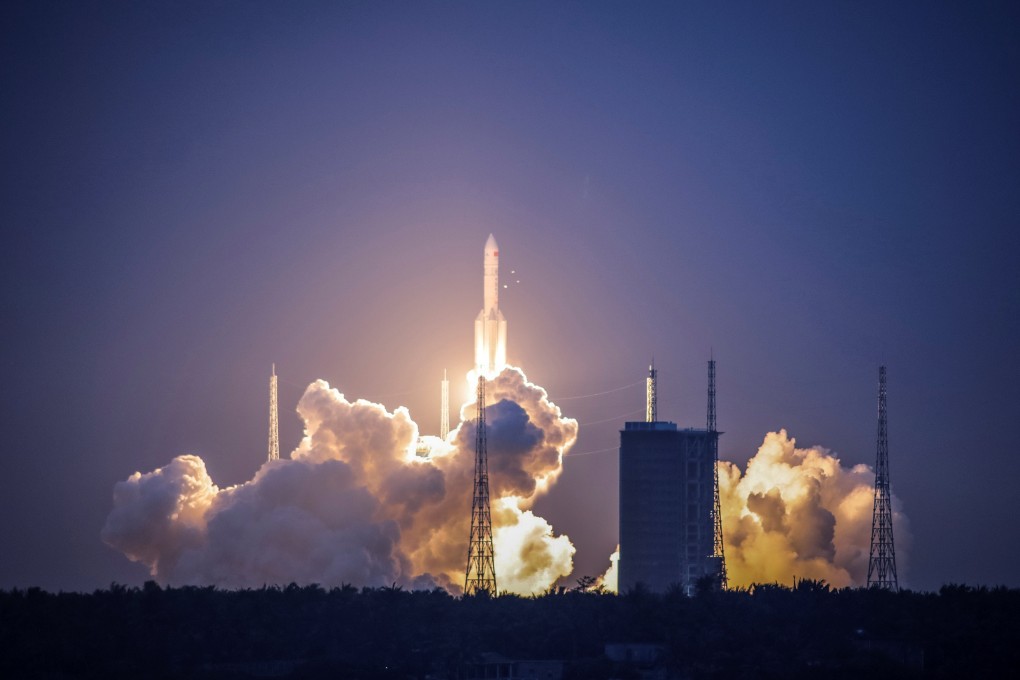Russia offers rocket engine tech as China’s Long March 5 struggles to get off the ground
- Roscosmos chief says the two countries could team up on space transport services and satellite navigation

China and Russia are forging stronger ties in space technology with Russia offering to supply rocket engines to China in exchange for Chinese microelectronics, according to the head of Russia’s state space corporation.
At the MAKS 2019 Moscow air show on Tuesday, Dmitry Rogozin, director general of Roscosmos, said Russia was also keen to use its rocket technology to launch Chinese satellites.
“Cooperation in the field of space transport services could involve the launches of Chinese spacecraft on board Russian carrier rockets to deploy China’s multi-satellite constellation, as well as possible deliveries of rocket engines,” Russian state news agency Sputnik quoted Rogozin as saying.
“[From] China, it is the supply of microelectronics that we need.”
In addition, representatives from both countries would discuss “cooperation in near-space infrastructure” when a Chinese delegation visits Roscosmos later this year or in early 2020, he said.
China’s space ambitions have been held back by a lack of progress in development of a heavy-lift rocket engine.